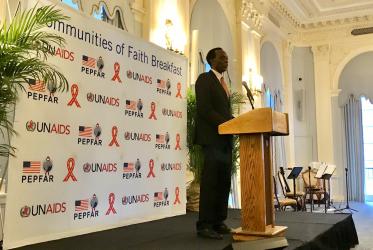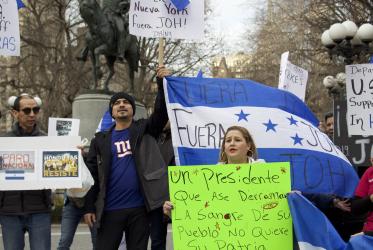Displaying 41 - 60 of 112
Freedom of religion rooted in justice
06 March 2020
The cry of the Papuans in Indonesia
14 November 2019
Churches in southern Africa stand against violence, xenophobia
10 October 2019
WCC gravely concerned for West Papua
25 September 2019
Dr Saïd Ailabouni: God is on the side of rejected, oppressed, occupied
12 September 2019
‘European humanitarian corridor’ proposed
02 May 2019
Dr Cecile De Sweemer, the doer of God
30 November 2018
Romani people seek “lives of decency, dignity, and justice”
27 September 2018
South Sudan church leaders offer Christmas season roadmap for hope
21 December 2017
Tveit: “unity and mission belong together"
15 October 2017
Conference explores Christian approach to borders
05 October 2017
World Week of Peace highlights “culture of love and resilience”
27 September 2017










